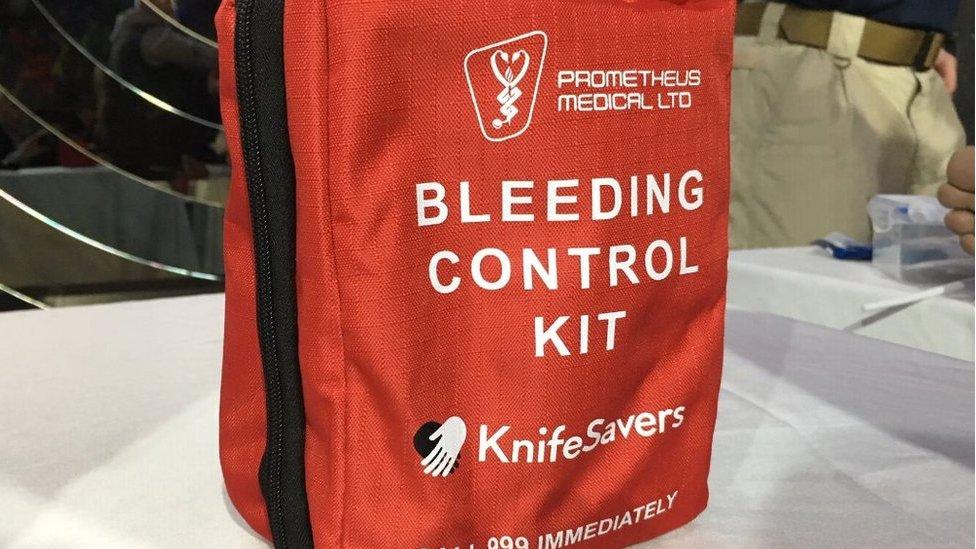Anti-knife crime campaign funds bleed control kits
- Published
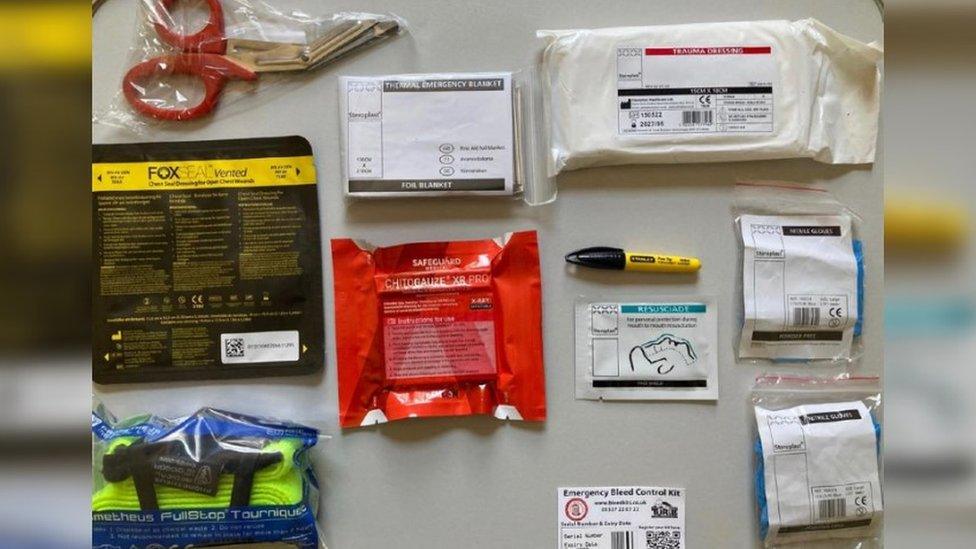
The kits are being rolled out by Avon and Somerset Police and contain materials and equipment to help stem the flow of blood
An anti-knife crime campaigner has raised thousands of pounds to buy 150 bleed control kits following the fatal stabbing of an 18-year-old man.
Leanne Reynolds supported Dontae Davis through college prior to his death in Bristol in October 2021.
Ms Reynolds said she hoped the kits, which contain items including bandages and tourniquets, could "potentially save a life".
The kits are being installed at locations in Bristol and Somerset.
Avon and Somerset Police is leading on the roll out of the kits and similar ones have already been given out in London and Birmingham.
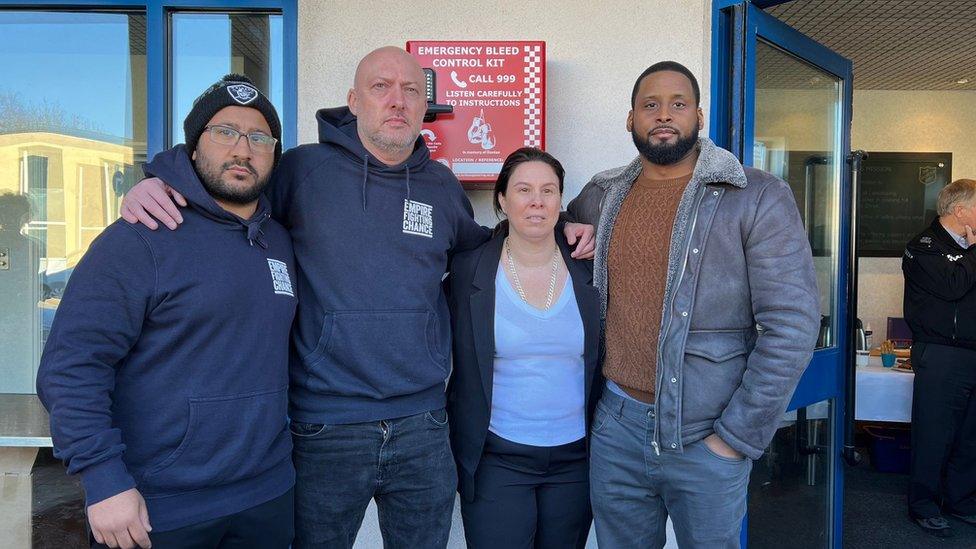
Leanne Reynolds (centre-right) raised thousands of pounds to get the kits installed in Bristol and Somerset.
Ms Reynolds, who has worked with disadvantaged young people for more than a decade, started campaigning for the kits shortly after Mr Davis' death.
"I'm realising young people don't want to put their weapons down, so I'm thinking of another angle," she said.
"If unfortunately someone does get stabbed or if there's a catastrophic bleed we can use these kits to potentially save a life while we're waiting for emergency services."
She added: "Hopefully we'll get more funding and get more people involved further down the line because it has to be tackled by everyone."
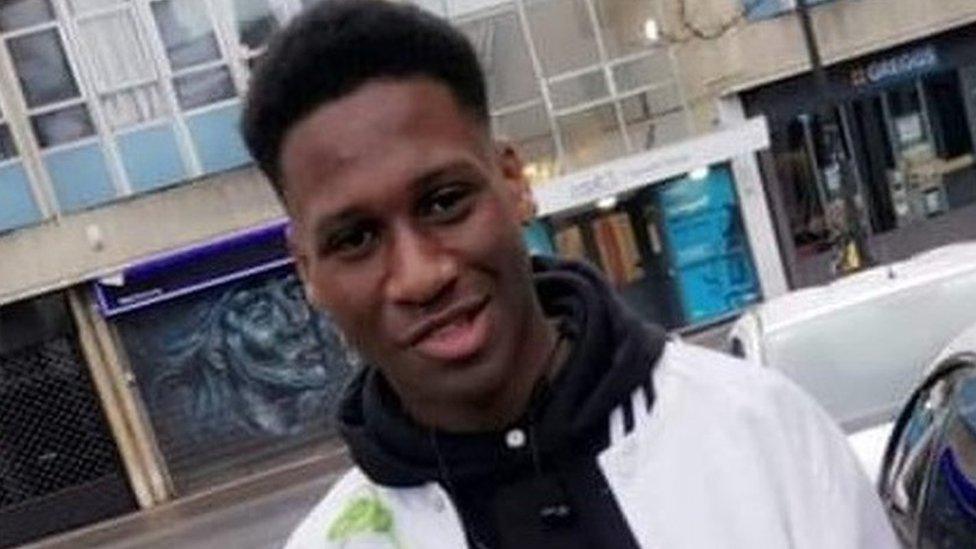
Dontae Davis died after being stabbed in Lawrence Hill in 2021
The first of the bleed control kits has been unveiled at The Salvation Army in Lawrence Hill in Bristol, just metres from the spot where Mr Davis was stabbed.
The packages will be kept inside red cabinets which read Emergency Bleed Control Kit and are designed to be easily visible.
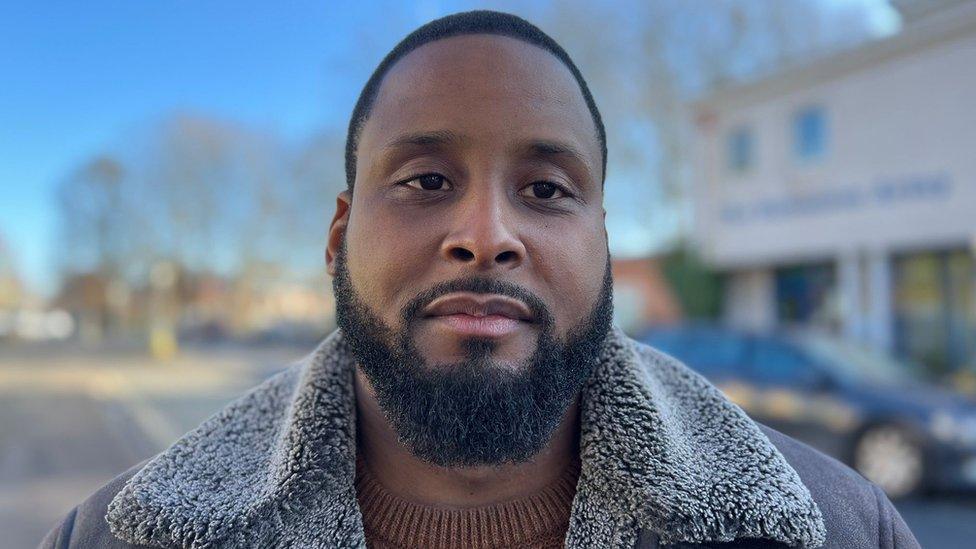
Omari Cato said it was unfortunate that the kits are necessary.
Omari Cato, an engagement and development worker in Bristol, hopes the time will come when they will no longer be necessary.
"It's sad they [the kits] are up, but the target is to get them down and for young people to live their dreams," he said.
"It's about the young people being heard more and investing more into young people."

Follow BBC West on Facebook, external, Twitter, external and Instagram, external. Send your story ideas to: bristol@bbc.co.uk, external
- Published21 October 2021
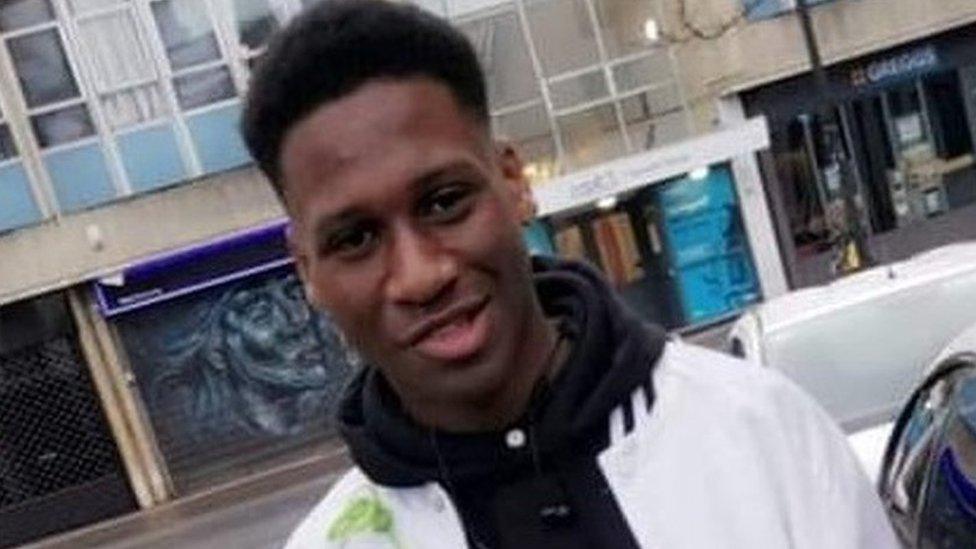
- Published1 October 2022
